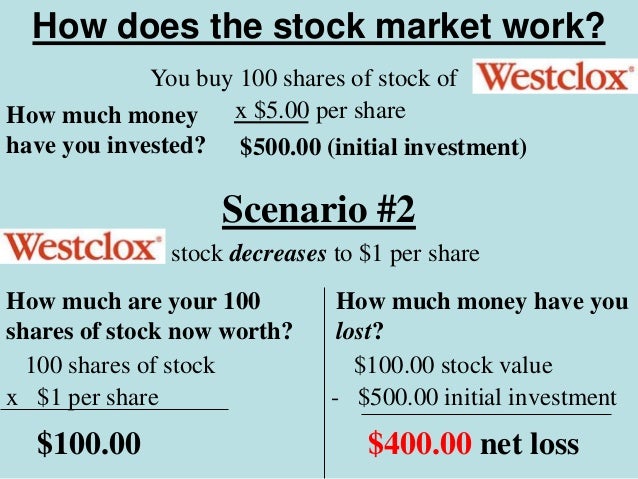If the idea of purchasing the stock market terrifies you, you are not alone. Individuals with extremely minimal experience in stock investing are either frightened by horror stories of the average financier losing 50% of their portfolio valuefor example, in the 2 bear markets that have actually currently happened in this millennium or are seduced by "hot ideas" that bear the promise of huge benefits however hardly ever settle.
The reality is that purchasing the stock exchange carries danger, however when approached in a disciplined manner, it is one of the most efficient ways to develop one's net worth. While the worth of one's home usually accounts for most of the net worth of the average individual, most of the upscale and really rich typically have most of their wealth invested in stocks.

Key Takeaways Stocks, or shares of a business, represent ownership equity in the company, which offer shareholders voting rights in addition to a recurring claim on corporate profits in the kind of capital gains and dividends. Stock exchange are where individual and institutional financiers come together to buy and offer shares in a public place.
A specific or entity that owns 100,000 shares of a company with one million impressive shares would have a 10% ownership stake in it. The majority of companies have outstanding shares that face the millions or billions. Typical and Preferred Stock While there are two main types of stockcommon and preferredthe term "equities" is associated with common shares, as their combined market price and trading volumes are many magnitudes bigger than that of preferred shares.
Preferred shares are so named since they have preference over the typical shares in a business to get dividends in addition to properties in case of a liquidation. Typical stock can be additional classified in terms of their voting rights. While the basic facility of common shares is that they ought to have equivalent voting rightsone vote per share heldsome business have dual or multiple classes of stock with different ballot rights connected to each class.